Since February 19, when Iran’s Ministry of Health reported the first case of infection with a new coronavirus in the country, the number of infected in the Islamic Republic has reached 24,811, while 1,934 have died and 8,913 patients have recovered.
New cases of infection in Iran are detected every day, and the mortality rate has already exceeded 7%. According to the spokesman for Iran’s Health Ministry Kianoosh Jahanpour, one citizen dies every 10 minutes in the country because of coronavirus. Iran is the third country after China most affected by coronavirus and has a high number of deaths, although the rate of patients who have recovered has risen and is currently higher than 37% in Ira. Among the recovered patients is a 103-year-old woman and a 91-year-old man.
103 year old Iranian 'super granny' Khavar Ahmedi has fully recovered from #COVID2019, discharged from hospital and back home with family. She displays a paper that reads — "Thank God, I defeated corona."
Similarly Iran will defeat wild world & wild virus#EndIranSanctions pic.twitter.com/jHVGa6zfLp— Syed Sadiq Raza Taqvi (@Sadiq_Taqvi) March 18, 2020
Some Iranian officials and politicians with COVID-19 managed to recover, among them Iran’s first vice-president Ishaq Jahangiri, vice-president Masumeh Ebtekar and Deputy Health Minister Iraj Harirchi. Many ministers and top officials are still under medical supervision or quarantined, including Ali Akbar Velayati, the adviser to Iran’s Supreme Leader.
However, the outbreak has claimed the lives of well-known politicians, members of parliament, religious figures and even the military. Among them were Nasser Shaabani (one of the top generals in Islamic Revolutionary Guard Corps, IRGC), Hossein Sheikholislam (adviser to Minister of Iranian Foreign Affairs), Ahmad Toisarkani (adviser to the head of the judiciary), Seyed Mohammad Mirmohammadi, (senior adviser to Iran’s Supreme Leader Ayatollah Ali Khamenei, and a member of Expediency Discernment Council).
Nasser Shabani, a top commander in Iran's IRGC forces, is confirmed to have died from the #coronavirus which has spread significantly among Iran's officials and politicianshttps://t.co/hqA27sFPaz
— The New Arab (@The_NewArab) March 13, 2020
#Iran’s reformist politician Mohammad-Reza Rahchamani has died of #CoronaVirus. He was founding member of Iran’s Solidarity Party, former MP & former head of State Welfare Organization.#COVID19 pic.twitter.com/ppzc0g6msj
— Abas Aslani (@AbasAslani) March 9, 2020
The coronavirus has also claimed the lives of many Iranian doctors and nurses who were at the forefront of the fight against the epidemic.
The martyr doctors, nurses & medical staff who died like slain soldiers combating the deadly #coronavirus in #Iran. https://t.co/R3cF8IKYQx
— Masroor Ansari (@MasroorAnsari) March 21, 2020
Another unpleasant incident has also taken place in Iran: on top of the spread of coronavirus a lot of people were poisoned by ethanol. In Iran, the sale of all alcoholic drinks is prohibited. A number of Iranians felt that drinking alcohol could help them avert the infection of coronavirus and used industrial alcohol (ethanol), leaving 100 people dead and more than 1000 hospitalized.
100+ people in #Iran killed by alcohol poisoning and 1000+ hospitalized, as some believe ingesting ethanol/methanol will ward off #coronavirus. In Fars province alone, 61 died from alcohol poisoning, fives times more than the # killed by corona in the areahttps://t.co/H8Z2inBDkF
— Yasna Haghdoost (@yasnaH_) March 18, 2020
HOW IS IRAN FIGHTING COVID-19?
Iran has taken a number of preventive measures to fight the spread of the virus, including sanitary and disinfection measures and halting air travel with certain countries. All Iranian schoolchildren and students were sent home for the Nowruz holidays (until April 13).
Coronavirus Outbreak in Iran: Disinfecting Tabriz Grand Bazaar, Streets [PHOTOS]https://t.co/4yaQACJ6iG pic.twitter.com/2fKV32N9mm
— Fars News Agency (@EnglishFars) March 16, 2020
An active mass campaign began for home quarantine in accordance with instructions from Iran’s Ministry of Health, especially in large populated cities with a high rate of infection. The hashtags “Stay at home” and “We will defeat the coronavirus”, supported by a number of Iranian politicians, ministers and celebrities, have spread on social networks.
While cultural and artistic events like art exhibitions, fashion shows and music concerts have been canceled in several countries due to the pandemic, Iranian artists are calm and have turned the theme of coronavirus into art. Thus, through the efforts of art institutes, artists and actors, a unique international festival of cartoons was launched under the slogan “We’ll defeat the coronavirus.”
https://t.co/fZwkZZ3jAX
Iran’s coronavirus cartoon contest receives submissions from over 40 countries pic.twitter.com/pyEDbyyUcX— Iranmirrorbd.com (@sayeedislam3) March 18, 2020
The Ministry of Information and Communications Technology has announced free Internet throughout the country because of coronavirus:
Internet Service Providers will provide their clients with 100 Gigabytes of #Free #Internet for next two weeks (end of Iranian year) to encourage people to spend more time at home & more prevention of #coronavirus outbreak:#Iran's ICT Minister, Jahromi.#COVID19 pic.twitter.com/RK93QDBfdY
— Iran_Newsroom (@Iran_NewsRoom) March 7, 2020
Iran’s authorities have significantly limited the use of cash money in the country, since banknotes are one of the key factors of the spread of coronavirus.
https://twitter.com/decapriogaetano/status/1235884643678908417?s=20
In Iran all mosques and shrines are closed. Any mass cultural events, as well as religious ceremonies, including collective prayers, are prohibited. Funeral processions have come under the most severe restrictions:
Iran has been badly hit by the #coronavirus outbreak, and hundreds who died from Covid-19 are being buried in mass graves. #Covid19 pic.twitter.com/xAyd8TWD9m
— South China Morning Post (@SCMPNews) March 17, 2020
Iranian President Hassan Rouhani issued an order to shut all outlets, markets and bazaars across the country for 15 days, except for pharmacies and grocery stores. Rouhani said that “these measures have been taken to support the most economically affected sectors of society in order to return them to normal life.”
The army and the IRGC joined to the headquarters for the fight against coronavirus and now are actively cleaning and disinfecting all streets in Iranian cities:
The IRGC is stepping into Iran's Coronavirus crisis and promising to clear the streets, shops and stores. It follows criticism of the "ineffectual" President, Parliament and Provinces. This piece looks at what may be at stake. https://t.co/HDpT5nEbG7 #IranWire
— Patrick Wintour (@patrickwintour) March 13, 2020
Members of #IRGC’s paramilitary faction, the #Basij, resolutely patrol the streets in #Iran in an effort to find and apprehend the #CoronaVirus. @SAISHopkins has a tradition of paying homage to these “heroes,” through events organized by @nargesbajoghli. pic.twitter.com/nuJ7U8sUVf
— Reza Behrouz (@RBehrouzDO) March 12, 2020
https://twitter.com/themooooji/status/1239270314627997697?s=20
Coronavirus in Iran has become a major factor in the consolidation and mobilization of the entire nation. Contrary to expectations that a crisis would compel the population to accuse the authorities of failure, Iranians have come together in the face of a common threat.
The coronavirus pandemic has killed over 1,400 people in Iran. Iranians have come together to help each other out by volunteering to distribute food, sterilize surfaces, and sew extra face masks for health workers. https://t.co/t5UxUHCiHt pic.twitter.com/DNcsWgEGED
— Radio Free Europe/Radio Liberty (@RFERL) March 21, 2020
Members of the Basij (paramilitary volunteer militia) joined the fight against coronavirus as well, volunteering to help the military, humanitarian, social and medical services.
Iran’s #coronavirus #stamp salutes #medical workers. #Iran has unveiled a postage stamp honoring medical professionals as front-line fighters of the #COVID19 outbreak in the country https://t.co/wC57pPSNnA #HealthForAll @WHO #WHO @iranpostCO @M_Sarkheil @Mm_Bahrami #philately pic.twitter.com/T5MzeHnjn1
— Universal Postal Union (@UPU_UN) March 19, 2020
Many Iranian farmers and manufacturers voluntarily connected their production resources to help the authorities: they redesigned production facilities and began to produce the most necessary products due to the epidemic: medical masks, antiseptic gels, medical gloves and much more.
https://twitter.com/free_iran_89/status/1237116699775774720?s=20
https://twitter.com/haj_mahmood2/status/1241094010174914567?s=20
A lot of volunteers united to help medical services disinfect the country.
https://twitter.com/Masoud_110a/status/1239874930461851648?s=20
A group of youth in #Qom supplies food to those who cannot afford to buy it. This is what distinguishes the #Iranian people, their solidarity in crises, and the unity that compels you to salute them with respect.#coronavirus #COVID19 #Iran pic.twitter.com/GSHGCHaeJa
— Sayed Abbas Shubbar (@shubberhhh) March 18, 2020
The Iranian government began to pay the first subsidies for the poorest families faced with difficulties due to the coronavirus. The first package of financial state support was paid to 3 million Iranian families who lost their income due to the coronavirus outbreak. According to Mohammad Bagher Nobakht, the head of the Organization for Planning and Budget of Iran, the total number of subsidies ($ 52-160) will be paid in three tranches to the poorest families of Iranian society most affected by coronavirus.
Tax holidays have been introduced for a number of Iranian entrepreneurs and businessmen.
In addition, the Iranian authorities temporarily released about 85,000 prisoners for an indefinite period as a measure to fight the spread of coronavirus, among them is a former veteran of the US Navy and British citizen Nazanin Zagari-Radcliffe:
Iran released more than 85,000 prisoners on temporary leave due to #COVID19 crisis. I urge @BorisJohnson to immediately release Julian #Assange from Belmarsh Prison. He could actually teach us a lot about coping with self-isolation. @wikileaks https://t.co/NNRyJlJuFq
— Srećko Horvat (@HorvatSrecko) March 19, 2020
https://twitter.com/EliyahYoshiyah/status/1239958051404333056?s=20
THE WILD WEST AND CALM EAST
In the light of the spread of the epidemic and its impact across countries in Europe and the United States, massive panic began among the population. Panicking consumers began to raid markets for supplies and even stood in a kilometer-long lines to buy weapons and marijuana.
Locals queue in front of #Montclair supermarket to stock up amid #coronavirus fears#USA pic.twitter.com/K3eFj5sSK3
— Ruptly (@Ruptly) March 8, 2020
Coronavirus panic in USA people lined up for hours to buy guns. pic.twitter.com/O81ZLMbWlJ
— Manjinder Singh Sirsa (@mssirsa) March 21, 2020
Empty shelves, especially in the loo roll and dried pasta aisles, have prompted a joint letter from supermarkets urging consumers to work together to ensure there is enough food for the UK https://t.co/jKgyLMt4KQ
— Sky News (@SkyNews) March 15, 2020
People in Iran, having lived under sanctions for more than 40 years, have been absolutely calm while visiting supermarkets despite the epidemic. The authorities took all necessary measures so that people affected by the outbreak would not be denied the most necessary products and medical supplies.
https://twitter.com/Barbod11irani1/status/1241012958597132288?s=20
In Iran, there is no shortages of food or other necessities: people are not stand in lines or fighting over toilet paper:
Two supermarkets in Iran & the US. Both are fighting #CoronaVirus but one of them is sanctioned! pic.twitter.com/Sgdxrx0YyJ
— S.Amir Sayyah (@3eyedamir) March 19, 2020
#iran | This is our local supermarket in #Qom. Jambo.
Like all other supermarkets, shelves are full and you don't see any panic or hoarding, even though Qom is epicentre of the virus.
Let's all learn to be civil.#coronavirus pic.twitter.com/deu7Oi6Gna— Sayed Abbas Shubbar (@shubberhhh) March 16, 2020
WHO STANDS WITH IRAN?
Of course, having been affected by sanctions and with a high population density (50 people per 1 sq. meter), it is very difficult for Iran to deal with the epidemic.
In addition to the WHO’s assistance, a number of friendly countries provided all possible aid to Iran. China and Russia came forward to offer help to the embattled nation by sending cargos of medical masks, surgical gloves and diagnostic tests.
#Russia gives #Iran 50 k #COVIDー19 testing kits
PressTV https://t.co/38PRIZp7T0
— Aenea Endymion (@aenea2662) March 15, 2020
China provides 2nd medical aid package to help curb #Coronavirus to #Iran
Including:
-20 million triple-layer masks
-3 million N95 masks
-2 million medical gowns#COVID19 pic.twitter.com/Ysg2wRAr6H— هواداران مجاهدین خلق-MojahedinFans (@MojahedinFan) March 17, 2020
Japan granted support totaling $23.4 million to help Iran cover medical needs.
In a #Nowruz video message on Instagram, Japan's Ambassador Mitsugu Saito said today his country was offering #Iran $23.4m to help it contain the #coronavirus outbreak.
As of this afternoon, Iran's death toll from #Covid_19 was 1,433, with 19,644 confirmed cases. pic.twitter.com/fSLJ24iGR4
— Kian Sharifi (@KianSharifi) March 20, 2020
Japan will also supply Iran with free medicine (Avigan) for treating patients with coronavirus:
https://twitter.com/HitsGoogle/status/1241011700511518727?s=20
Turkey, Iran’s neighbor, also sent aid to the Iranian people to fight against coronavirus:
Turkey donated;
• 1,000 kits
• 4,715 overalls
• 20,000 medical aprons
• 78,000 three-layer masks
• 2,400 goggles
• 4,000 N95 face-masksto #Iran to help the country fight against deadly coronavirus.#COVID2019 pic.twitter.com/nbFWd7LSuX
— EHA News (@eha_news) March 18, 2020
Some of the Arab countries of the Persian Gulf, despite some political differences with Iran, also helped the Islamic Republic, thereby protesting the globalist allies of the United States – Saudi Arabia and Bahrain.
The second consignment of Qatari aid went to Iran to sell it to the Islamic Republic for cash
The second consignment of Qatari aid, including seven tons of medical and health equipment, was sent to Tehran to fight the Corona virus.@PahlaviReza @USAdarFarsi #Covid2019TR pic.twitter.com/vDalSK0cfY
— Saeid Dabiry???? (@divanen44) March 21, 2020
Kuwait Amir directs help to Iran over coronavirus – FM https://t.co/tHPWiAZ9gP #KUNA #KUWAIT
(I.F) pic.twitter.com/6L9MCbU5vx— Kuwait News Agency – English Feed (@kuna_en) March 17, 2020
Bemerkenswert & vorbildlich: Emergency medical supplies were flown from the Emirates to Iran to help doctors stem the spread of the coronavirus: Coronavirus: Sheikh Abdullah bin Zayed expresses UAE's support to Iranian people https://t.co/HBqXrZ0O55 via @TheNationalUAE
— Jörg Wojahn ???????? (@JorgWojahn) March 15, 2020
Saudi Arabia and Bahrain showed no initiative in helping Iran, and only blamed Iran for the spread of coronavirus in their countries.
#Iranian Foreign Ministry Spokesman Seyed Abbas Mousavi rejected Riyadh’s claim about the reason why the passports of Saudi nationals arriving in Iran are not stamped, urging #Saudi Arabia not to politicize the coronavirus diseasehttps://t.co/xNagHcgCVJ pic.twitter.com/K4ekgScTJC
— Tasnim News Agency (@Tasnimnews_EN) March 11, 2020
Iran requested $ 5 billion from the IMF to fight against coronavirus. It has been Iran’s first request for cash assistance from the IMF over the past 60 years. However, no answer has yet been received.
Many in Europe fear that the United States could block Iran’s request for a $5 billion loan from the International Monetary Fund to help deal with the crisis. https://t.co/Lwe9EW31Qj
— UCLA International Institute (@UCLAINTL) March 19, 2020
TRUMP’S INHUMAN IRAN POLICY
While countries are trying to come together despite political differences over the common threat, exchanging practical experience and resources in the light of coronavirus spread, the United States is imposing new sanctions against Iran.
US administration gleefully takes pride in killing Iranians citizens on #Nowruz—our New Year.
The White House takes its "maximum pressure" to a new level of inhumanity with its utter contempt for human life.
Iran to US: Your policy will live in infamy. But Iran won't break. pic.twitter.com/2xGWG8xxH8
— Javad Zarif (@JZarif) March 20, 2020
Moreover, the US administration, despite seeing the threat of the coronavirus outbreak in its own country, is adamant and not ready to take humanitarian steps to help Tehran. On the contrary, Mike Pompeo is proposing a military strike against Iran:
This is crazy: Pompeo and Grenell reportedly arguing that coronavirus has created window of opportunity for direct strike on a weak and divided Iran.https://t.co/RjE2IfDGIf pic.twitter.com/dMv2IA9h2E
— Paul MacDonald (@pkmacdonald) March 21, 2020
#USA sent #Iran a blunt message: the spread of the coronavirus will not save it from US sanctions that are choking off its oil revenues and isolating its economyhttps://t.co/Xlx5FF1b6S
— The Daily Star (@dailystarnews) March 20, 2020
Some politicians in the United States oppose the inhuman policy. In particular, Senator Bernie Sanders, one of the candidates for the US presidential election in November 2020, spoke in favor of lifting sanctions against Iran:
Iran is facing a catastrophic toll from the coronavirus pandemic. U.S. sanctions should not be contributing to this humanitarian disaster.
As a caring nation, we must lift any sanctions hurting Iran’s ability to address this crisis, including financial sanctions. https://t.co/OBjff1nsxz
— Bernie Sanders (@SenSanders) March 18, 2020
Iran called on the world community to press the Trump administration to lift sanctions. Antonio Gutteres, the UN Secretary General, received a special letter from Mohammad Javad Zarif, the Iranian minister of foreign affairs:
In letter to UN SG @antonioguterres, I urge the world body—and member states—to disregard inhuman US sanctions on my country. And insist that they be lifted.
As the #COVID19 ravages Iran, we should recognize that viruses don't discriminate. To fight them, neither should humans. pic.twitter.com/YDqw9fKzHl
— Javad Zarif (@JZarif) March 13, 2020
Iranian President Hassan Rouhani wrote a special letter to American nation, stressing that it is time for the Americans to inform their government and representatives in the US Congress that hostility, pressure and sanctions will never succeed.
Rouhani noted that “any hostility and political myopia that tries to undermine the medical system and limit financial resources in Iran in this crisis time, will have a direct impact on the fight against this pandemic in other countries.”
According to Rouhani, because of the US sanctions, many ordinary Iranians lose their health, work and income. “The Iranian nation will continue to resist both the virus and the sanctions, tough policies and strategies of maximum pressure from the US government. This difficult time will pass all right in the end, but will the Americans take responsibility for the unrelenting pressure on the Iranian people placed through their voting and paying their taxes?’”the Iranian President said in his message.
Important message of President @HassanRouhani to American people:https://t.co/NKy1D6pU5L
— Javad Zarif (@JZarif) March 21, 2020
In addition to these measures, Iran is running a campaign to collect signatures for a special petition demanding the US lift unilateral sanctions against the Islamic Republic in the context of the pandemic.
The petition is open for signing on corona2plus.com.
“No coronavirus! No sanctions! Coronavirus is a global threat and combating this global threat calls for world cooperation; US government’s extrajudicial sanctions against Iranian nation hinder international convergence to combat this global disaster,” the petition says.
It is noteworthy that European countries, which also suffer from the coronavirus spread, have said no to Iran’s request:
The spokesman for the European External Action Service, Peter Stano, acknowledged that the EU did not have the means to convince the United States to lift its sanctions against Iran, while the Iranian mission to the United Nations on March 19 urged the international community to ask Washington to lift them.
“The EU, as you know, cannot influence the sanctions regime. This is the authority of each individual state …”, the EU spokesman said at a press-conference in Brussels.
In spite of this, the UK, having left the EU, has positively answered Iran’s request. Some members of the UK Parliament created a petition in support of the lifting US sanctions:
Suspend sanctions against Iran for the duration of the coronavirus pandemic – Petitions- Only British citizens or UK residents have the right to sign https://t.co/ItWMAeMdJ0
— Alina (@alinafaba) March 21, 2020
The Socialist Equality Party also showed its solidarity with Iran:
Stop the collective punishment of the Iranian people — End US sanctions now!
Coronavirus has become a weapon of war against Iran
50 people being infected with the virus every hour
Crime against humanity https://t.co/dIvbdxjY2B #liftheSanctionsoniran
— Socialist Equality Party (Britain) (@SEP_Britain) March 21, 2020
Other countries also support Iran in its call for the United States to lift sanctions:
Pakistani PM Joins Int’l Campaign Against US Anti-Iran Sanctionshttps://t.co/mESK8GkNPp pic.twitter.com/thBAquwews
— Fars News Agency (@EnglishFars) March 21, 2020
UN chief Guterres calls for end to US sanctions on Iran#Iran #CoronaVirusIran #USCriminalSanctions @JZarif @antonioguterres https://t.co/HmDkb6HXl5
— Iran's Today (@Iran) March 21, 2020
Russia stresses lifting US’ anti-Iran sanctions#Iran #Russia #USCriminalSanctions https://t.co/OR3O7uOofO
— Iran's Today (@Iran) March 21, 2020
https://twitter.com/iraniandotcom/status/1239531459276206081?s=20
Given that the situation with coronavirus in some states has reached a critical point, Iran still hopes the Trump administration may come around and are ready to cooperate with the US for humanitarian purposes, offering practical help to fight against coronavirus:
Deputy health min.: #Iran ready to help US control #coronavirus pandemic #COVIDhttps://t.co/nGCpWJDsJV
— Press TV ???? (@PressTV) March 20, 2020
Perhaps the Trump administration will review their position if the situation in the United States gets worse, but they will undoubtedly put forward a number of conditions for Iran, both in relation to nuclear and military missile programs. Iranians are unlikely to agree to any conditions. If the coronavirus spread grows across the world, it is likely that only after the next US presidential election that a new presidential administration will be able to review the sanctions policy against Iran in the context of the global epidemic.







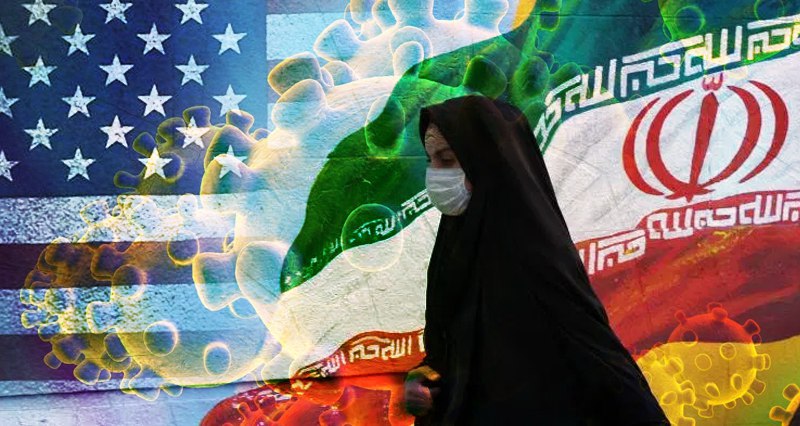
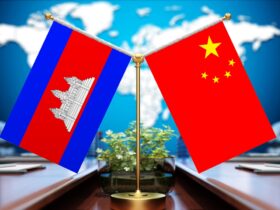

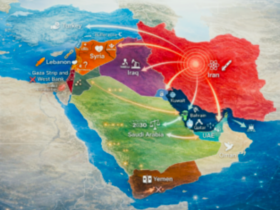
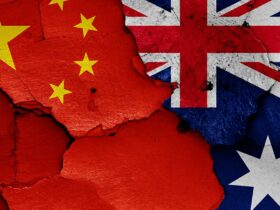


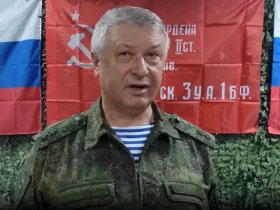
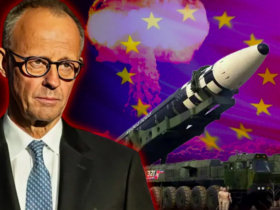

Leave a Reply